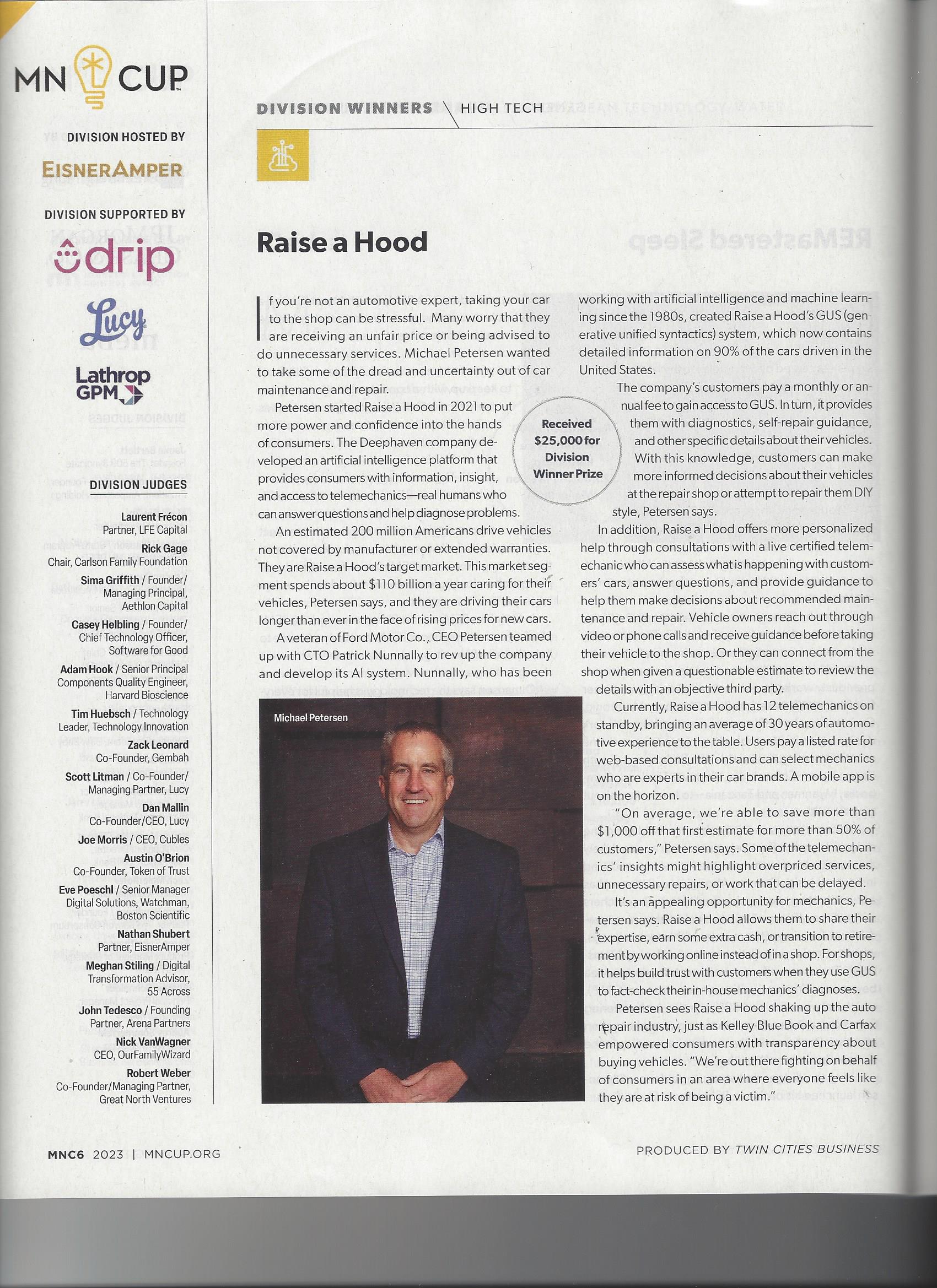Raise a Hood Division Winner by Twin Cities Business

If you're not an automotive expert, taking your car to the shop can be stressful. Many worry that they are receiving an unfair price or being advised to do unnecessary services. Michael Petersen wanted to take some of the dread and uncertainty out of car maintenance and repair.
Petersen started Raise a Hood in 2021 to put more power and confidence into the hands of consumers. The Deephaven company developed an artificial intelligence platform that provides consumers with information, insight, and access to telemechanics-real humans who can answer questions and help diagnose problems.
An estimated 200 million Americans drive vehicles not covered by manufacturer or extended warranties.
They are Raise a Hood's target market. This market segment spends about $110 billion a year caring for their vehicles, Petersen says, and they are driving their cars longer than ever in the face ofrising prices for new cars.
A veteran of Ford Motor Co., CEO Petersen teamed up with CTO Patrick Nunnally to rev up the company and develop its Al system. Nunnally, who has been working with artificial intelligence and machine learning since the 1980s, created Raise a Hood's GUS (gen-erative unified syntactics) system, which now contains detailed information on 90% of the cars driven in the United States.
The company's customers pay a monthly or annual fee to gain access to GUS. In turn, it provides them with diagnostics, self-repair guidance and other specific details about their vehicles.
With this knowledge, customers can make more informed decisions about their vehicles at the repair shop or attempt to repair them DIY
style, Petersen says.
In addition, Raise a Hood offers more personalized help through consultations with a live certified telem-echanic who can assess what is happening with customers' cars, answer questions, and provide guidance to help them make decisions about recommended maintenance and repair. Vehicle owners reach out through video or phone calls and receive guidance before taking their vehicle to the shop. Or they can connect from the shop when given a questionable estimate to review the details with an objective third party.
Currently, Raise a Hood has 12 telemechanics on standby, bringing an average of 30 years of automo-tive experience to the table. Users pay a listed rate for web-based consultations and can select mechanics who are experts in their car brands. A mobile app is on the horizon.
"On average, we're able to save more than $1,000 off that first estimate for more than 50% of customers," Petersen says. Some of the telemechan-ics' insights might highlight overpriced services, unnecessary repairs, or work that can be delayed.
It's an appealing opportunity for mechanics, Petersen says. Raise a Hood allows them to share their "expertise, earn some extra cash, or transition to retirement by working online instead of in a shop. For shops, it helps build trust with customers when they use GUS to fact-check their in-house mechanics' diagnoses.
Petersen sees Raise a Hood shaking up the auto repair industry, just as Kelley Blue Book and Carfax empowered consumers with transparency about buying vehicles. "We're out there fighting on behalf of consumers in an area where everyone feels like they are at risk of being a victim."